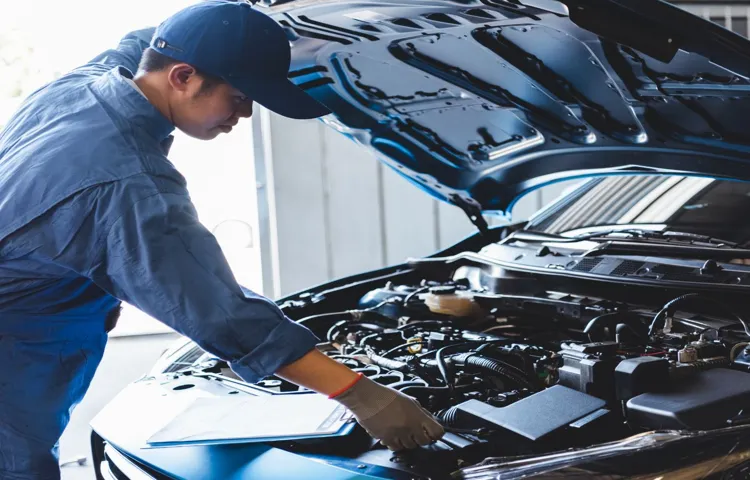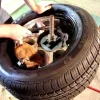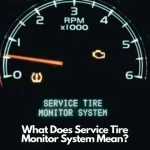Car troubles are never fun, and if you’re the unlucky one stuck with a faulty transmission, the expenses can quickly add up. If you’re wondering whether your car insurance will cover transmission issues, you’re not alone. Car insurance policies can be confusing and complicated, leaving drivers uncertain about what is and isn’t covered.
In this blog, we’ll explore the question of whether car insurance covers transmission issues and help you understand the terms and conditions of your policy. So fasten your seatbelts, and let’s dive in to find out.
Table of Contents
Understanding Car Insurance Coverage
If you’re wondering whether car insurance covers transmission, the answer is usually no. Most car insurance policies do not cover mechanical failures, including problems with your car’s transmission. This means that if your transmission breaks down, you will likely have to pay for the repairs out of pocket.
However, there are some exceptions. If your car is involved in an accident and the transmission is damaged as a result, your insurance policy may cover the cost of repairs. Additionally, if you have a comprehensive car insurance policy, there may be some coverage available for non-collision related damage, such as theft, vandalism, or weather-related damage.
Therefore, it’s important to fully understand what your car insurance policy covers and does not cover, so you can be prepared in the event of an accident or mechanical failure.
What is covered by car insurance?
Car Insurance Car insurance covers a range of incidents and damages that can occur to your vehicle, other drivers, and property. The most common types of coverage are liability, collision, and comprehensive. Liability insurance serves as protection for any damages or injuries you cause to others in an accident, while collision coverage covers damage to your own vehicle during an accident.
Comprehensive insurance covers any theft, vandalism, or damages that occur outside of a collision. Additionally, some policies may also include medical payments coverage, which can help pay for medical expenses in the event of an accident. It’s important to carefully review your policy to understand what is covered, as well as any deductibles or limits that may apply.
While insurance can seem like an unnecessary expense, it can provide peace of mind and financial protection in case of an unforeseen incident.
Types of Car Insurance Coverage
Car insurance is a crucial aspect of owning a car, and it’s important to understand the different types of coverage available. Liability insurance is the most basic coverage, and it provides protection in case you cause damage to someone else’s property or injure them in an accident. Collision coverage is another type of insurance that provides financial protection in case you crash your car into an object or another car.
Comprehensive coverage is the most extensive type of car insurance, covering you for damages caused by events such as theft, fire, or natural disasters. Some insurance companies offer additional types of coverage, such as personal injury protection or uninsured motorist coverage. Understanding these different types of car insurance coverage is essential when shopping for a policy that meets your specific needs.
Transmission Coverage
Will car insurance cover transmission? This is a common question many car owners have, especially those who have experienced transmission issues with their vehicles. The answer to this question depends on various factors such as the type of car insurance policy you have and the cause of the transmission problem. In general, car insurance policies do not cover mechanical breakdowns, including transmission failure.
However, if your car gets damaged in an accident that leads to transmission problems, your insurance policy may cover the cost of repair or replacement. It is essential to read through your car insurance policy carefully and understand what is covered and what is not. Additionally, you can opt for additional coverage such as mechanical breakdown insurance that covers expenses related to mechanical issues, including transmission failure.
Ultimately, it is crucial to have regular maintenance for your car, including the transmission, to prevent unexpected breakdowns and expenses.
What can happen to your car’s transmission?
Transmission Coverage Your car’s transmission is one of its most important components, managing the power from the engine to the wheels. Unfortunately, it can also be one of the most expensive to repair or replace. There are a variety of things that can go wrong with a transmission, from fluid leaks to serious internal damage, and when they do, the cost can range from a few hundred dollars to several thousand.
That’s why it’s important to have transmission coverage as part of your insurance policy. This can help cover the cost of repairs or replacements and give you peace of mind knowing that you won’t be stuck with a hefty bill if something does go wrong. Make sure to speak with your insurance agent to understand what is covered and what you’re responsible for in the event of a transmission issue.
How do you get coverage for transmission repairs?
If you’re wondering how to get coverage for transmission repairs, it’s important to understand the different options available to you. One option is to rely on your vehicle’s original manufacturer warranty, which typically only covers transmission repairs for a limited time period. Another option is to purchase an extended warranty or vehicle service contract, which can provide coverage beyond the original warranty period.
It’s important to read the terms and conditions of any warranty or service contract carefully to understand what is covered and what is not. Additionally, some insurance policies may provide coverage for transmission repairs in the event of an accident or other covered event. Ultimately, the best way to ensure coverage for transmission repairs is to take care of your vehicle and address any issues promptly before they become major problems.
This includes regular maintenance such as fluid changes and inspections, as well as having any necessary repairs done by a qualified mechanic. With proper care and attention, you can help avoid costly transmission repairs and ensure that your vehicle stays on the road for years to come.
What to consider when selecting transmission coverage?
When choosing transmission coverage, there are a few important things to consider. One of the main factors is the area of coverage – is it going to cover the location where you will be using it? Make sure to check if there are any blackspots or areas with weaker signals in the location. Another factor to consider is the type of signal you need – do you need a stronger signal for larger files or will a lower signal suffice for just basic texting and calling? Additionally, it is important to research different providers to see which one will provide the coverage you need at the best price.
By taking the time to consider these factors, you can make an informed decision and choose a transmission coverage that will meet your needs.
Making a Transmissions Insurance Claim
If you’re wondering whether your car insurance will cover a transmission repair or replacement, the answer is that it depends on your policy. Some insurance policies do cover mechanical or electrical failures, including those that affect the transmission. However, it’s important to read your policy carefully and understand any exclusions or limitations.
Additionally, if the damage to your transmission was caused by an accident that was your fault, your liability insurance may cover the cost of the transmission repair or replacement under your collision coverage. In any case, if you need to make a transmission insurance claim, be sure to document the damage and any repairs or replacement needed, and contact your insurance company as soon as possible.
How do you file a claim for transmission repairs?
If you have experienced transmission issues, it’s essential to understand how to file a claim for transmission repairs and get the coverage you need. The process of making a transmission insurance claim starts by contacting your insurance company and providing the necessary information, including the facts surrounding the damage, vehicle information, and the maintenance history. After the initial call, your insurance provider will typically assign a claims adjuster to investigate the damages and determine if it’s covered under your policy.
In most cases, the adjuster will schedule an inspection of your vehicle to assess the damage and determine the extent of repairs required. Once the claim is approved, you can have the repairs done and submit the receipt to your insurance company for reimbursement. Be sure to keep all the documentation of repairs, as well as any other expenses incurred as a result of your transmission issues.
Overall, filing a claim can seem overwhelming, but with the right information, it can be a straightforward and stress-free process. Remember to read your policy thoroughly to understand what’s covered and consult with your insurance provider if you have any questions.
What documents do you need to file a transmission insurance claim?
When making a transmissions insurance claim, there are certain documents needed to ensure a smooth and efficient process. The first document that must be presented is the insurance policy itself, which should clearly state the terms and conditions of the policy. This document will help determine the level of coverage and the type of claim that can be made.
The next document required is the claim form, which will help outline the details of the claim, such as the damage caused, the date and time of the incident, and any relevant information pertaining to the repair or replacement of the transmission. Other important documents may include photographs of the damaged transmission, receipts for any repairs or replacement parts, and any police reports or witness statements that may support the claim. By having all necessary documents prepared and submitted in a timely manner, the transmission insurance claim process can be resolved quickly and without any additional stress or complications.
Final Thoughts
If you’re wondering whether your car insurance policy will cover transmission repairs, the answer is that it depends on the specific coverage you have. Some policies may include comprehensive or collision coverage, which could cover transmission damage resulting from an accident, while others may not. It’s important to carefully review your policy to understand what is covered and what is not.
If your transmission damage is caused by normal wear and tear, it may not be covered by insurance. In this case, you may need to pay for repairs out of pocket or explore other options such as a warranty or extended warranty. It’s always best to be proactive and make sure you have the appropriate coverage for your needs to avoid any surprises when it comes to filing a claim.
Conclusion
When it comes to car insurance, it’s important to remember that not everything will be covered. While your policy may cover damages resulting from an accident or theft, it’s unlikely to cover normal wear and tear on your transmission. However, being a savvy driver and taking care of your vehicle can help prevent costly repairs in the first place.
At the end of the day, the best insurance policy is a well-maintained car and a smart driving record.”
FAQs
What is covered by a standard car insurance policy?
A standard car insurance policy typically covers damages caused by accidents, theft, vandalism, and natural disasters. However, transmission problems are generally not covered by a standard policy.
What is transmission insurance?
Transmission insurance is a type of coverage that protects against damage or failure of your vehicle’s transmission. It is typically offered as an optional add-on to a standard car insurance policy.
Does car insurance cover transmission repairs?
In most cases, car insurance policies do not cover transmission repairs. However, if the damage to your transmission was caused by an accident that is covered by your policy, then the cost of repairs may be covered.
When should I consider getting transmission insurance?
If you have an older car with a high mileage or a vehicle that is known to have transmission problems, then getting transmission insurance may be a good idea. It can provide financial protection and peace of mind if your transmission fails unexpectedly.
How much does transmission insurance cost?
The cost of transmission insurance varies depending on several factors, including the make and model of your vehicle, your driving history, and the level of coverage you choose. On average, it can cost between $50 and $200 per year.
Can I purchase transmission insurance separately from my car insurance policy?
Yes, some insurance companies offer standalone transmission insurance policies. However, it is often more cost-effective to add transmission coverage as an endorsement to your existing car insurance policy.
Are there any exclusions or limitations to transmission insurance coverage?
Yes, like all insurance policies, transmission insurance may have exclusions or limitations on what is covered. For example, pre-existing transmission problems may not be covered, or there may be a limit on the maximum amount of coverage available for transmission repairs. It is important to read your policy carefully to understand what is and is not covered.



